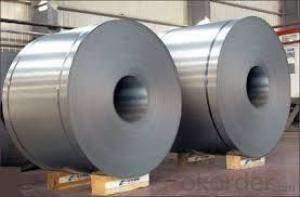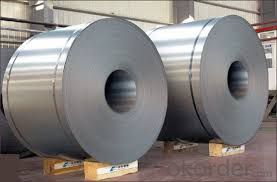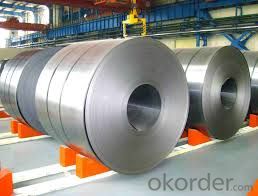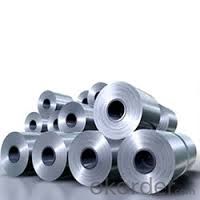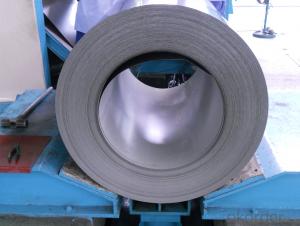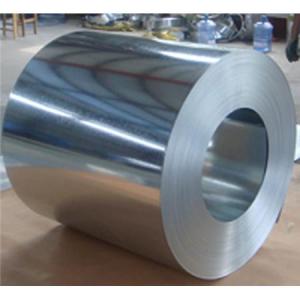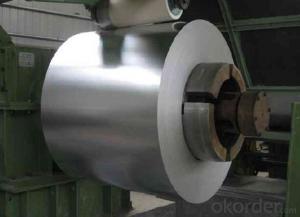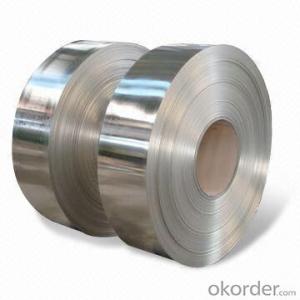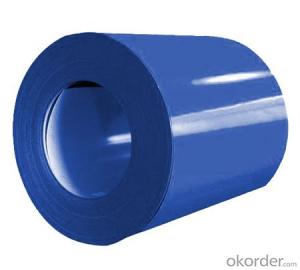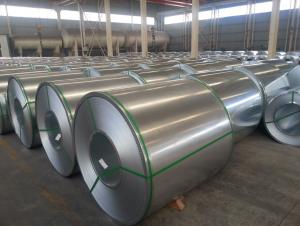Hot Dipped Galvanised Steel Coils/Zinc Coated Steel/HDG Coil,DX51D+Z,S280GD+Z,SGC440,Z120,Z27/G90
- Loading Port:
- Shanghai
- Payment Terms:
- TT OR LC
- Min Order Qty:
- 50 m.t.
- Supply Capability:
- 6000 m.t./month
OKorder Service Pledge
OKorder Financial Service
You Might Also Like
Quick Details
| Grade: | 300 Series | Standard: | JIS,AISI,GB | Length: | as customers' requested |
| Thickness: | 0.1-120mm | Width: | 1000-2000mm | Place of Origin: | Shanxi China (Mainland) |
| Brand Name: | CNBM | Model Number: | 309S | Type: | Coil |
| Application: | petroleum refining | Certification: | SGS, ISO | Color: | natural color |
| Packing: | Standard export seaworthy packing or according to your requirements | Available Finish: | 2B/BA/8K/No.4/SB/HL | Edge: | slit edge and mill edge |
| Features: | accurate dimensions | Manufacture technology: | cold drawn,pickling, hot rolled and cold rolled | Quality: | high quality 201, 304,316,304L,316L,309,410,430 Stainless Steel Coil |
| Stock: | Always in stock | Item: | 201, 202,301, 304,316,304L,316L,309,410,430 Stainless Steel Coil |
Packaging & Delivery
| Packaging Detail: | Standard export packing or as customer's requirement ASTM 309S Stainless Steel Coil |
| Delivery Detail: | In 15 days |
Specifications
201, 202,301, 304,316,304L,316L,309,410,430 Stainless Steel Coil
Width:1000-2000mm
Thickness: 0.1-120mm
Quality:High quality
Product Description
ASTM 309S Stainless Steel Coil
Thickness:0.1-120mm
Width:1000-2000mm
Length: As required
Typical physical properties for stainless steel coil
Grade | Chemical composition | ||||||
C | Si | Mn | P | S | Ni | Cr | |
% | % | % | % | % | % | % | |
309S | ≤0.08 | ≤1.00 | ≤2.00 | ≤0.04 | ≤0.030 | 12.00-15.00 | 22.00-24.00 |
Item | 201, 202,301, 304,316,304L,316L,309,410,430 Stainless Steel Coil |
Technical | Hot rolled and cold rolled |
Standard | ASTM A240,GB/T3280-2007,JIS4304-2005,ASTM A167,EN10088-2-2005,GB/T3280-2007,EN10095-99,JIS4312,etc |
Material | 201, 202,301, 304,316,304L,316L,309,410,430 |
Surface | NO.1,2B, mirror finish,4K,8K,Hairline finish |
Thickness | 0.1-120mm |
Width | 1000-2000mm |
Price term | FOB,CFR,CIF,CNF |
Application | Stainless steel coil applies to construction field, ships building industry, petroleum, chemical industries, war and electricity industries, food processing and medical industry, boiler heat exchanger, machinery and hardware fields. Stainless steel coil can be made according to the customer’s requirements. |
Contact | If you have any question, please feel free to contact me. |
- Q: I bought this Brinks pad lock and it says boron steel on the lock. I was just wondering what exactly is boron steel and how hard/tough is it?
- Boron steel is rather hard, it is by no means titanium, but certainly better than mild steel. However, as with all metals, hardness is inversely proportional to flexibility, meaning that a good solid whack with a sledge hammer could crack your lock.
- Q: What is the maximum width of galvanized steel strip, please? The galvanized coat is 275, and how long is one coil?
- As far as I know, the galvanized rolls of WISCO are wider in width than other domestic steel mills, and can produce 2080 wide steel coils.
- Q: Are steel coils used in electrical equipment manufacturing?
- Yes, steel coils are commonly used in electrical equipment manufacturing. Steel coils are often used as core material in transformers, motors, and generators due to their magnetic properties and ability to efficiently transfer electrical energy. They provide structural support and help enhance the performance and efficiency of electrical equipment.
- Q: What are the dimensions of steel coils used in the agricultural machinery industry?
- The dimensions of steel coils used in the agricultural machinery industry can vary depending on the specific application and machinery. However, common dimensions for steel coils in this industry range from 0.4 to 2.5 millimeters in thickness and 600 to 2000 millimeters in width. The length of the coils can vary based on the requirements of the machinery and production process.
- Q: steel structure
- Disadvantages Of Steel
- Q: How are steel coils used in the production of electrical devices?
- The production of electrical devices heavily relies on steel coils. These coils, typically made from high-quality steel, are precisely wound into a circular shape. They have a crucial function in various electrical devices, including transformers, motors, generators, and inductors. Transformers, for instance, heavily rely on steel coils. These devices are essential for adjusting voltage levels in electrical circuits. They consist of two separate coils, the primary and secondary coils, which are wound around a magnetic core. The steel coil plays a vital role in providing stability and support to the windings, ensuring proper alignment and preventing any deformation. Moreover, the high magnetic permeability of steel helps enhance the efficiency of energy transfer between the coils. In motors and generators, steel coils are utilized to create magnetic fields that either generate mechanical energy or convert it into electrical energy. These coils are wound around an armature or rotor, which rotates within a magnetic field created by a stator. As the current flows through the coils, a magnetic field is produced, resulting in the rotation of the armature or the generation of electrical power. Steel coils are also used in inductors, another type of electrical device. Inductors consist of a coil of wire wound around a core material, often made of steel. Steel coils in inductors help increase the inductance, which measures the device's ability to store energy in a magnetic field. By storing energy in this manner, inductors can regulate currents, filter out noise, and provide stability to electrical circuits. All in all, steel coils are indispensable in the production of electrical devices. They provide stability, support, and enhance the necessary magnetic properties for efficient functioning. Without steel coils, the performance and reliability of electrical devices like transformers, motors, generators, and inductors would be greatly compromised.
- Q: What are the different methods of cut-to-length shearing for steel coils?
- Steel coils can be cut-to-length using various methods, each with unique advantages and applications. Some commonly used methods include: 1. Rotary Shearing: This technique utilizes a rotating shear blade to cut through the coil. It offers excellent precision and can handle a wide range of material thicknesses. Rotary shearing is well-suited for high-volume production and allows for high cutting speeds. 2. Guillotine Shearing: In this method, a straight blade is employed to cut through the coil. It is a versatile technique that can handle different material thicknesses and widths. Guillotine shearing is relatively simple and efficient, making it a popular choice for many applications. 3. Slitting: Slitting involves creating multiple longitudinal cuts in the coil to produce narrower strips. It is commonly used when a coil needs to be divided into smaller coils or when narrower strips are necessary for specific applications. Slitting can be performed using either rotary or straight blades. 4. Laser Cutting: Laser cutting employs a high-powered laser beam to melt or vaporize the material, resulting in a precise and clean cut. It is ideal for cutting complex shapes or patterns and can handle both thin and thick steel coils. Laser cutting offers high accuracy and minimal material distortion. 5. Waterjet Cutting: In this method, a high-pressure stream of water mixed with abrasive particles is used to cut through the coil. It is suitable for a wide range of materials, including steel, and can achieve high accuracy. Waterjet cutting is often utilized for cutting thick coils or when minimizing heat-affected zones is crucial. Each method has its own strengths and limitations, and the selection depends on factors such as material thickness, required precision, production volume, and specific application requirements. Choosing the most suitable method is vital to ensure efficient and high-quality cut-to-length shearing for steel coils.
- Q: How are steel coils inspected for quality assurance?
- Steel coils are inspected for quality assurance through a rigorous process that involves various tests and checks. Firstly, visual inspection is conducted to look for any surface defects such as scratches, dents, or rust. This ensures that the coils are in good condition and free from any obvious flaws. Next, dimensional inspection is performed to verify the dimensions and tolerances of the coils. This involves measuring the width, thickness, and length of the coils to ensure they meet the specified requirements. Any deviations from the standard dimensions are noted and addressed. Additionally, mechanical testing is carried out to assess the strength and durability of the steel coils. This includes conducting tensile tests to measure the strength and elasticity of the steel, as well as impact tests to evaluate its ability to withstand sudden loads or shocks. Furthermore, chemical analysis is conducted to determine the composition and purity of the steel. This involves taking samples from the coils and analyzing them in a laboratory to check for the presence of any impurities or elements that may affect the quality of the steel. To ensure the coils meet specific industry standards, non-destructive testing methods such as ultrasonic testing or magnetic particle inspection may be employed. These techniques allow for the detection of internal defects or irregularities that may not be visible to the naked eye. In addition to these tests, the coils may undergo surface treatment inspections, such as galvanization or coating checks, to ensure the protective layers are applied correctly and meet the required specifications. Overall, steel coil inspection for quality assurance involves a combination of visual, dimensional, mechanical, chemical, and non-destructive testing methods. These comprehensive inspections help to ensure that the steel coils meet the necessary quality standards and are suitable for their intended applications.
- Q: What are the benefits of using steel coils in the manufacturing of pipes?
- Using steel coils in the manufacturing of pipes has several advantages: 1. Strength and durability: Steel is renowned for its strength and durability, making it an ideal material for pipes. By utilizing steel coils, pipes are provided with a solid foundation, enabling them to withstand high-pressure applications and resist damage from external factors such as impact or corrosion. This strength and durability increase the lifespan of the pipes, reducing the need for frequent replacements. 2. Customizability: Steel coils offer a high degree of flexibility in terms of customization and design. They can be easily formed into various pipe shapes and sizes, allowing manufacturers to produce pipes that meet specific project requirements. This flexibility also allows for the production of seamless pipes, which have superior structural integrity and a reduced risk of leakage. 3. Excellent thermal conductivity: Steel possesses excellent thermal conductivity, meaning it efficiently transfers heat or cold. This property is essential for pipes used in industries such as oil and gas, where temperature control is crucial. By utilizing steel coils, pipes can effectively handle extreme temperatures, preventing any damage to the pipes or the substances flowing through them. 4. Cost-effectiveness: Steel coils can be produced in large quantities, resulting in economies of scale and lower production costs. This cost-effectiveness benefits both manufacturers and consumers, as it helps keep the overall cost of pipes down. Additionally, the durability of steel pipes reduces the need for frequent repairs or replacements, resulting in long-term cost savings. 5. Enhanced corrosion resistance: Steel coils can be coated with protective layers to enhance their resistance to corrosion. This corrosion resistance is vital in applications where pipes come into contact with corrosive substances or are exposed to harsh environmental conditions. By utilizing steel coils with appropriate coatings, manufacturers can ensure that their pipes have a longer lifespan and maintain their structural integrity even under challenging circumstances. In conclusion, the utilization of steel coils in pipe manufacturing provides numerous benefits, including strength, customizability, thermal resistance, cost-effectiveness, and corrosion resistance. These advantages make steel coils the preferred choice for many industries that rely on durable and efficient piping systems.
- Q: In terms of weight to strength titanium is stronger. But is it stronger than mild steel? If it is stronger, how much stronger is it?
- The tensile strength of mild steel is about 70kpsi. Pure titanium is 60-110kpsi, and with 7% manganese it is 130-170kpsi. 1kpsi = one thousand pounds per square inch. So in other words, high grade titanium can be somewhat stronger than mild steel.
Send your message to us
Hot Dipped Galvanised Steel Coils/Zinc Coated Steel/HDG Coil,DX51D+Z,S280GD+Z,SGC440,Z120,Z27/G90
- Loading Port:
- Shanghai
- Payment Terms:
- TT OR LC
- Min Order Qty:
- 50 m.t.
- Supply Capability:
- 6000 m.t./month
OKorder Service Pledge
OKorder Financial Service
Similar products
Hot products
Hot Searches
Related keywords
